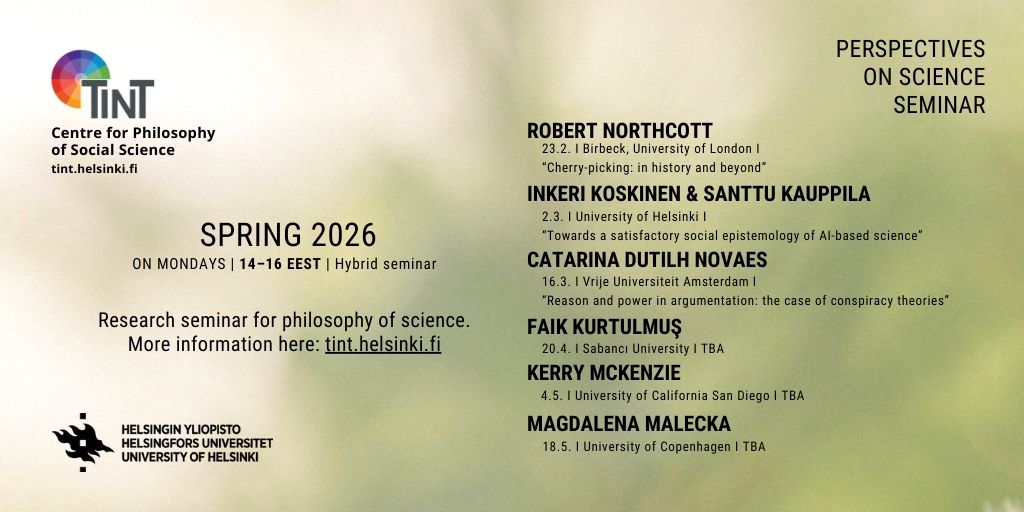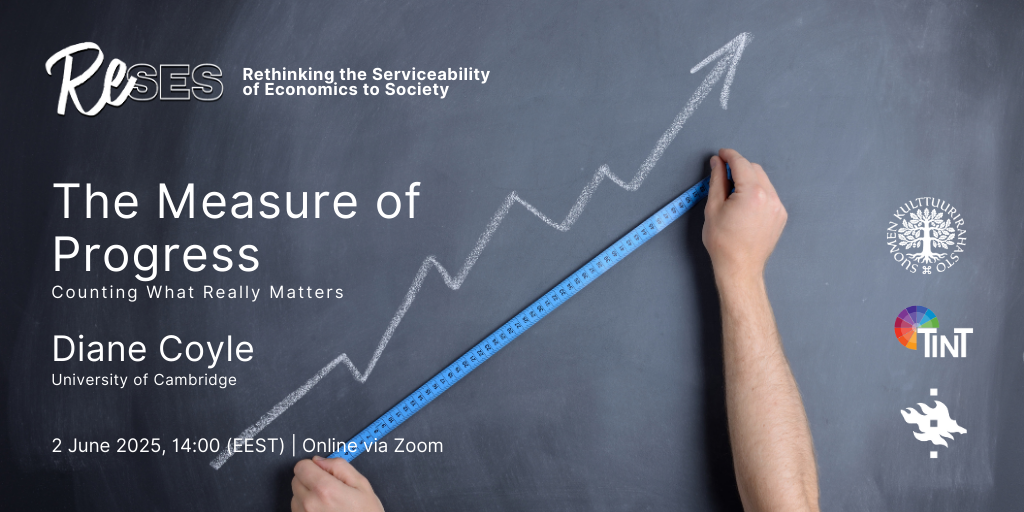In our first event of the year 2026, the Perspectives on Science Seminar will be organized together with the Helsinki Philosophy Colloquium, where Philippe Huneman (Institut d’Histoire et de Philosophie des Sciences et des Techniques (CNRS/ Université Paris I Panthéon Sorbonne)) will give a talk titled “The concept of organism in the emergence of biology and its relationship to Kantian philosophy”.
The seminar will take place in Metsätalo (room 9) from 16:15 to 17:45 on Thursday, January 15, 2026. Please note the unusual time, room, and that this event is in-person only!
Perspectives on Science is a research seminar that brings together experts from the philosophy of science and several fields of science studies. It is organized by TINT – Centre for Philosophy of Social Science at the University of Helsinki. More information about the seminar can be found on the TINT webpage https://tint.helsinki.fi.
What: “The concept of organism in the emergence of biology and its relationship to Kantian philosophy” by Philippe Huneman
When: Thursday 15.01.2026, from 4 to 6 pm (EEST, Helsinki time).
Where: Metsätalo (room 9). This event is in-person only and will not be recorded!
Abstract:
Evolutionary biologists nowadays discuss a « return of the organism » (Bateson 2005) that was arguably forgotten in the major theoretical frameworks available for life sciences, namely molecular biology and evolutionary biology. The main field in which this is argued is evolutionary developmental biology (or Evo-Devo); one argument is that the developing organism has to be taken into account to understand adaptation and even evolution, and focusing on genes dynamics as the classical evolutionary biology does – based on population genetics – is not enough.
Several authors refer to Kant’s idea of organized beings as teleological and self-organising to articulate the metaphysical options of developmental biology (Gilbert and Sarkar 2000). And indeed, Kant in the Critique of the Power of Judgement was the first to mention self-organisation, and he constantly referred to modern embryology, as developed by Caspar Wolff and Friedrich Blumenbach at the same time.
In this talk, I will explain Kant’s claim about organisms as self-organizing systems, and the concept of teleology it requires, by explicating the original idea of ‘purpose’ he offers us, namely the “lawfulness of the contingent as such“. Then I will show how it makes sense of several scientific advances of his time, especially in embryology and physiology, focusing on the shift in the concept of ‘purpose’ that he suggests – namely, privileging a parts-whole relation over a means-ends relation.
By explaining why this concept, for Kant, requires a transcendental viewpoint according to which purpose is merely a “regulative“ principle for judgment rather than a “constitutive“ part of reality, I will finally assess the claim that developmental biology is Kantian, and argue that, when naturalized, Kant’s notion of organisms as self-organized loses the theoretical unity it had, and splits into two directions, one mostly functional, and the other, mostly structural (Huneman 2017, 2026). Finally, I will draw some general consequences for philosophers of science.
Bio:
Philippe Huneman is Research Director at the Institut d’Histoire et de Philosophie des Sciences et des Techniques (CNRS) at the Université Paris I Panthéon Sorbonne. He mainly works on the philosophy of evolutionary biology and ecology, as well as the theory of scientific explanations, and the politics of prediction.
Authored about 180 journal papers and chapters, and 8 edited books on these topics. Most of his papers are available at http://philippehuneman.wordpress.com. He recently authored Why? The philosophy behind the question (Stanford University Press, 2023) and Death: Perspectives from the Philosophy of Biology (Palgrave Macmillan, 2023) – this year he publishes When Metaphysics meets Biology. Kantian Approaches to the Concept of Organism (Routledge, 2025) and Profiling : How Predictive Algorithms Shape Identity and the Social Fabric (Stanford University Press, 2026).
If you have any questions about the seminar, do not hesitate to contact mirja-leena.zgurskaya@helsinki.fi.
All are warmly welcome!


